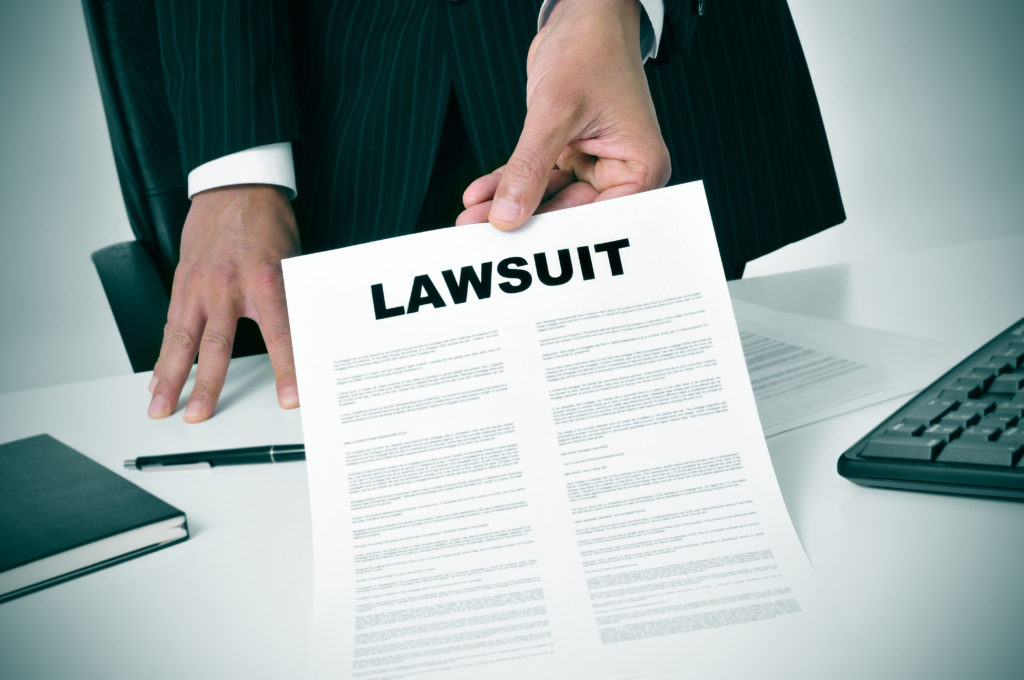Civil Lawsuit Defense
What Is a Civil Lawsuit?
Civil lawsuits are legal processes in which one person or a group of people holds another person or entity liable for some wrongful or harmful act. If the person suing succeeds, she or he typically receives financial compensation for the harm suffered as a result of the defendant’s wrongful act.
Civil cases differ from criminal cases in a few key ways:
- The burden of proof is lighter, making it easier for the plaintiff to win the case.
- Anyone can bring a civil case, whereas a prosecutor can bring a criminal case.
- If the defendant loses a civil case, she or he pays in dollars rather than jail time.
Important to note is that criminal cases can also end up being civil cases. Sometimes, a defendant may be found “not guilty” in a criminal case but ends up losing in a civil case because of a lighter burden of proof.
Are you facing a costly civil lawsuit? If so, you need to talk to an experienced civil lawsuit defense lawyer today. A lawyer can help you respond to the complaint. They will work with the plaintiff to settle the case outside the court system if doing so proves to be the best course of action for you. Call now or fill out the form below to take the appropriate steps in your civil defense case.
Common Types of Civil Cases
There are a ton of different types of civil cases, but it is important to learn about the most common disputes:
- Personal injury claims
- Medical malpractice
- Environmental law
- Property disputes
- Contract disputes
- Torts
- Class action lawsuits
- Employment and labor disputes
- Real estate lawsuits
- Product liability
- Divorce lawsuits
- Workers’ compensation claims
Because there is such a wide range of civil cases, you must make it a priority to find a lawyer who specializes in the type of case you are a defendant in.
Legal Options for Responding to a Civil Lawsuit
If you find yourself acting as the defendant in a civil lawsuit, you must understand your legal options moving forward.
Negotiate a Solution With the Plaintiff
At any point during the dispute, you can try to negotiate with the plaintiff outside of the court system. This can be beneficial for both you and the plaintiff because you save a ton of money in legal fees.
In fact, the majority of civil lawsuits never make it to court. The defendant and plaintiff, along with their attorneys, typically reach a settlement outside the court system, which makes the process much easier, less expensive and less time-consuming.
File a Response to Their Complaint
Filing a response to the complaint is the most common way to deal with a civil lawsuit. When presented with a complaint, you have a set amount of time to respond with the facts of the case and your affirmative defenses.
Filing an answer within the timeframe given is a necessary step because if you do not file, you must face a default judgment. The response lets the court know you intend to defend the case brought against you.
File a Motion to Dismiss
When you find yourself brought up in a lawsuit, you have the option of filing a motion to dismiss. This would hold off on you needing to respond to the lawsuit until the judge determines whether the case should proceed or be dismissed altogether. If the judge denies your motion to dismiss, you will have 10 days to file a response.
There are several reasons to file a motion to dismiss a lawsuit:
- Failure to state a claim: The plaintiff did not state a legal claim in her or his complaint.
- Lack of jurisdiction: The court does not have jurisdiction over you or the case.
- Insufficiency of service or process: The plaintiff did not appropriately serve the summons or complaint to you.
Typically, a motion to dismiss becomes an option when the complaints brought against you are vague and unclear as to what the plaintiff’s legal argument is against your action or lack of action.
Sue the Plaintiff
As a response to the plaintiff’s lawsuit, you can file a counterclaim against him or her, which simply means you are suing them instead of them suing you. There are two different types of counterclaims:
Permissive counterclaims: This type of counterclaim occurs when your claim is not a part of the same transaction that acts as the foundation of the plaintiff’s claim. For permissive counterclaims, you would file a lawsuit separate from the plaintiff’s lawsuit against you.
Compulsory counterclaims: If your counterclaim is connected to the same transaction that your plaintiff’s claim is from, this would be a compulsory counterclaim. You would need to file a counterclaim as a response to the plaintiff’s claim; otherwise, you cannot file a lawsuit.
Contact an Attorney to Build a Civil Lawsuit Defense
No matter what avenue you take when navigating a civil lawsuit defense, you need an experienced attorney to help you through it. An attorney has the education and experience necessary to identify the best course of action and bring forth affirmative defenses for the case.
Additionally, an attorney can help you and your plaintiff settle the case outside of the court system. This can save you a lot of time and money.
Work with an Experienced Civil Lawsuit Defense Lawyer
Have recently found yourself on the receiving end of a civil case lawsuit? You must understand what that means and what your options are. If you have any hope of moving forward with fighting the case, get a civil lawsuit lawyer on your side.
The time to take action is now.
Submit a request online or call us today at (866) 345-6784 to get in touch with an experienced lawyer in your area!

